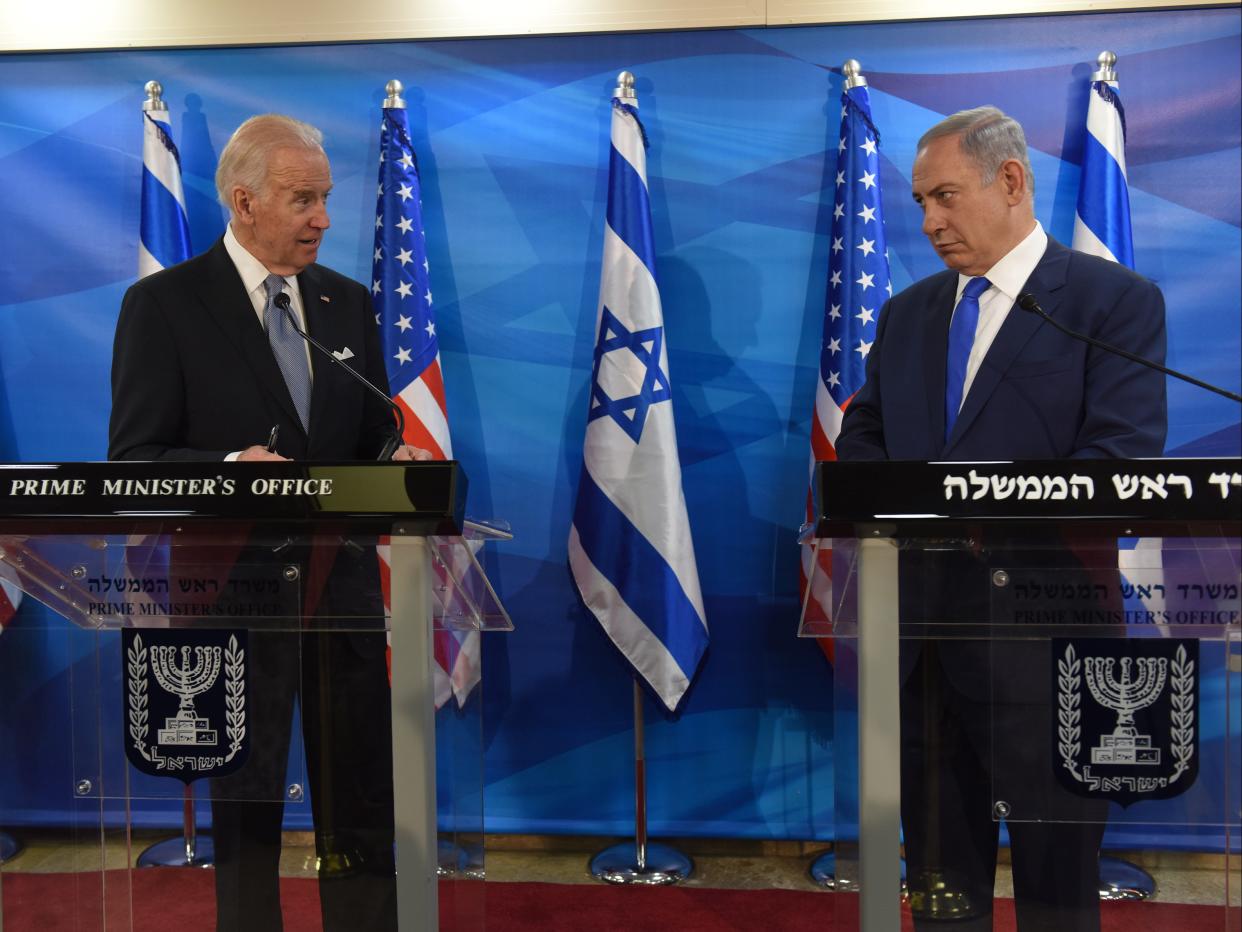Biden’s first Netanyahu call will be ‘soon’, says White House as he is accused of sidelining pro-Trump Israeli leader

- Oops!Something went wrong.Please try again later.
White House Press Secretary Jen Psaki confirmed that President Biden's first call with a Middle East leader will be with Israel's Prime Minister Benjamin Netanyahu, but said only the conversation will take place "soon".
The acknowledgement of the impending call comes after weeks of speculation that Mr Biden is delaying his first talk with the Israeli PM to signal that he will not be as indulging of his administration's priorities as the Trump White House was.
Mr Trump called Mr Netanyahu within two days of entering the White House in 2017, NBC News reported.
Middle East analyst and Senior Fellow at the Carnegie Endowment for International Peace Aaron David Miller wrote for CNN that the lack of a call was "surely a calculated effort to demonstrate that there will be no return to the Israel-centric policies of the Donald Trump years," adding that Mr Biden is likely to be pro-Israel but not necessarily pro-Netanyahu.
The former chairman of the Senate Foreign Relations Committee, vice president, and now president, Mr Biden has known Mr Netanyahu for decades and has insisted that their personal relationship is close.
"I don't agree with a damn thing you say but I love you," Mr Biden once wrote to Mr Netanyahu, using his nickname "Bibi", NBC News reported.
According to Mr Miller, Mr Biden seems to be more concerned with China and Asia than the Middle East, with Iran being an exception.
Read more: Follow live updates on the Biden Administration and the Trump post-presidency
National Security Adviser Jake Sullivan signalled this change by boosting the Asia staff and reducing the Middle East staff, as reported by Politico.
While Mr Biden has a myriad issues to deal with at home, he has managed to speak to a number of other world leaders, such as those of Canada, Japan, Germany, Australia, Britain, France, South Korea and NATO.
In his first major foreign policy speech at the State Department, Mr Biden didn't mention Israel. But his record of supporting the country is long and strong, first visiting the country in 1973 as a young senator. He helped shape the largest military aid packages in US history when he was Vice President, supporting Israel to the tune of $38 billion. The agreement was signed in 2016.
While the Biden Administration will let Mr Trump’s move of the US embassy to Jerusalem from Tel Aviv stand, Mr Biden is unlikely to be overly gracious or helpful to Mr Netanyahu.
Mr Biden was left red-faced after Israel announced an expansion of housing in East Jerusalem, furthering tensions with Palestinians after Mr Biden had encouraged Israel to do the opposite. At the time in 2010, Mr Biden said that "the decision by the Israeli government to advance planning for new housing units in East Jerusalem undermines ... the trust that we need right now in order to begin ... profitable negotiations," Reuters reported.
Unlike Mr Trump, Mr Biden will most certainly not aid Mr Netanyahu's electoral prospects and he will probably not make any major moves in the conflict between Israel and Palestine, as the struggle is deadlocked in place with any progress unlikely to be made, Mr Miller wrote for CNN.
Read More
Palestinians claim Israel blocked Covid vaccines from entering Gaza
Israel decides not to participate in Emirati arms fair
Israel hoping to host European sport fixtures thanks to Covid vaccine success

